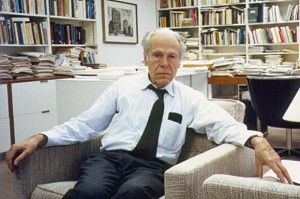Albert O. Hirschman and The Power of Failure.
I liked this Gladwell piece from The New Yorker profiling Albert O. Hirschman, an influential economist and author of several well known books.
Hirschman, an esoteric mind, felt that people were more creative when they experienced failure. Then, he believed, people were forced to think.
Hirshman wrote, “Creativity always comes as a surprise to us; therefore we can never count on it and we dare not believe in it until it has happened. In other words, we would not consciously engage upon tasks whose success clearly requires that creativity be forthcoming. Hence, the only way in which we can bring our creative resources fully into play is by misjudging the nature of the task, by presenting it to ourselves as more routine, simple, undemanding of genuine creativity than it will turn out to be.”
He went on, “Nietzsche’s famous maxim, ‘That which does not destroy me, makes me stronger.’ This sentence admirably epitomizes several of the histories of economic development projects in recent decades.
He also believed in another theory LP has touched on, randomness. “While we are rather willing and even eager and relieved to agree with a historian’s finding that we stumbled into the more shameful events of history, such as war, we are correspondingly unwilling to concede—in fact we find it intolerable to imagine—that our more lofty achievements, such as economic, social or political progress, could have come about by stumbling rather than through careful planning. . . . Language itself conspires toward this sort of asymmetry: we fall into error, but do not usually speak of falling into truth.”
One thing that I loved about Hirshman was that he was an explorer. After working while being miserable at the Fed, he moved his family to Bogota, Columbia for four years to study emerging markets and development economics. He said that the four years living in Columbia, amid a war, were four of his favorite.
Interesting read if you have a few minutes today….
